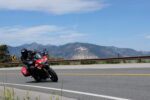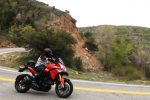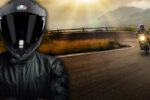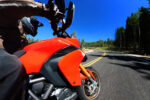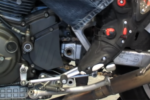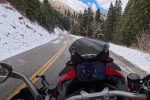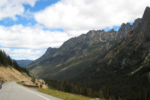Stop Getting Scared in Corners
What if I told you that what you read on the internet, or maybe what you were taught was totally wrong? What if us as a motorcycle community have been looking at corner entrance the wrong way? Let me show you what I mean.
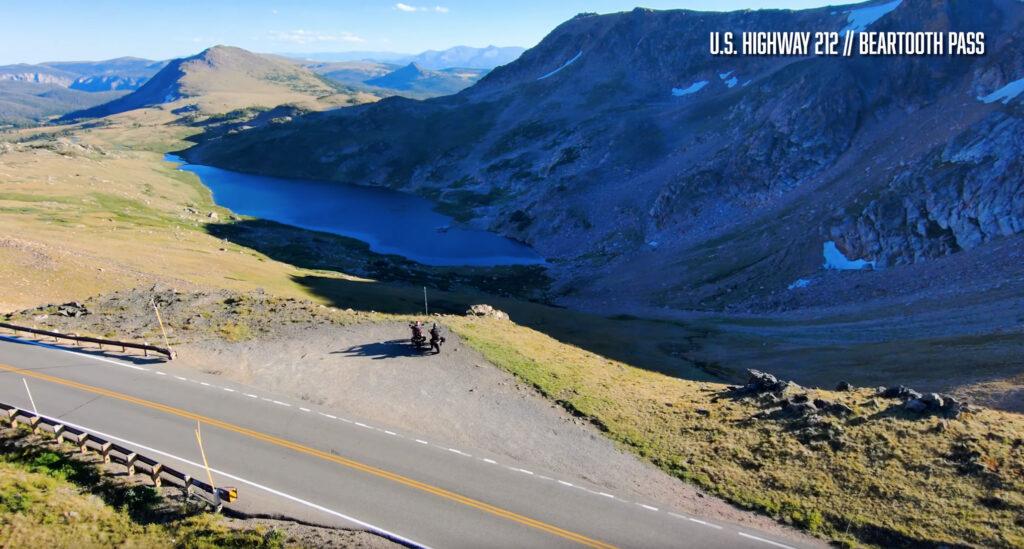
We are on the most epic road in all of America. This is Beartooth Pass. Highway 12 from Cook City in the north corner of Yellowstone National Park to Red Lodge, Montana. It reaches to 11,000 feet in elevation. It’s not the most technical or the most challenging, but it is absolutely spectacular.
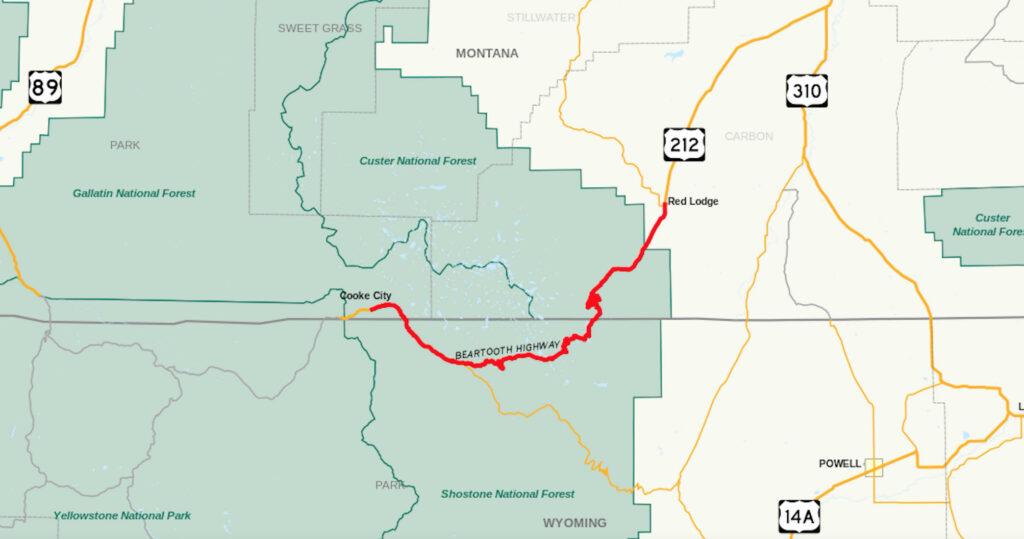
It is the perfect road for what we’re going to be talking about today, because a mistake here can lead to dire consequences. I mean, look at that. Don’t mess that up.
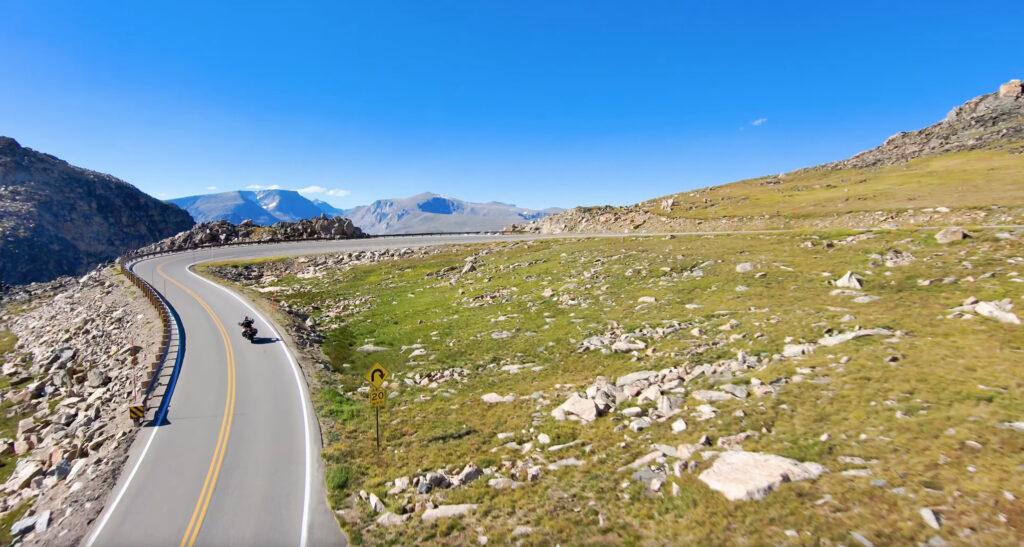
Now. I think we can all agree that rushing corner entrance is bad. We don’t want to go into any corner faster than we can see. We’ve all been there. We’ve all over-cooked a corner entrance and
we can all agree that it’s not fun.
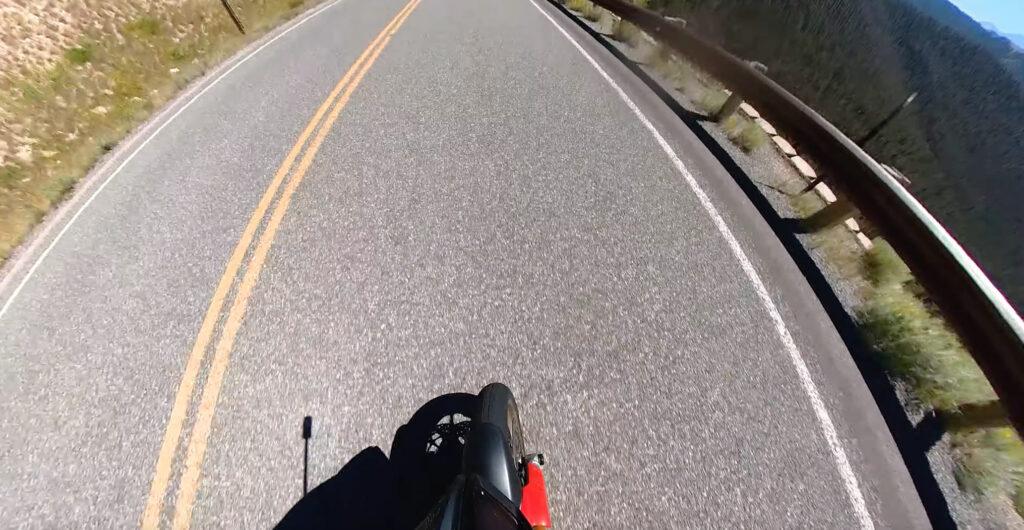
Before we get into what I really want to say. You can’t make any kind of good decision if you’re looking at your front wheel. So first and foremost, get those eyes up. Focus on where you are and what you are doing.
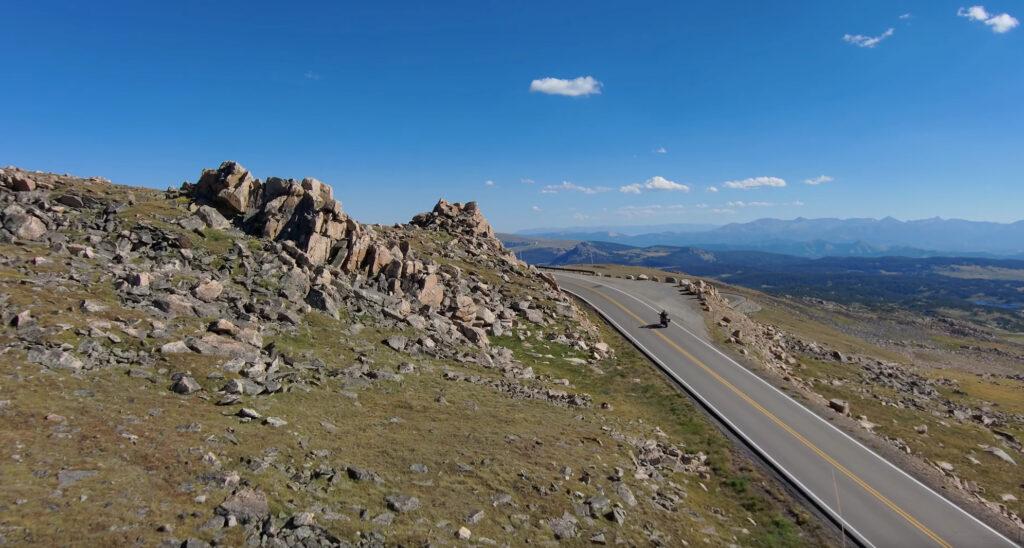
So here we are at the entrance to one of a one of a thousand blind corners on this road. If the prevailing thought is that we need to be off the brakes before tip in and then gently accelerate throughout the entire corner or even neutral throttle, What is that entrance speed? If we’re going to say that we have to be off the brakes at a certain point, that means that there’s a definitive answer.
You’ve never seen this corner before. You have no idea what’s on the other side of this corner. It’s been five years since I’ve seen this corner. I have no idea what’s on the other side of the corner.
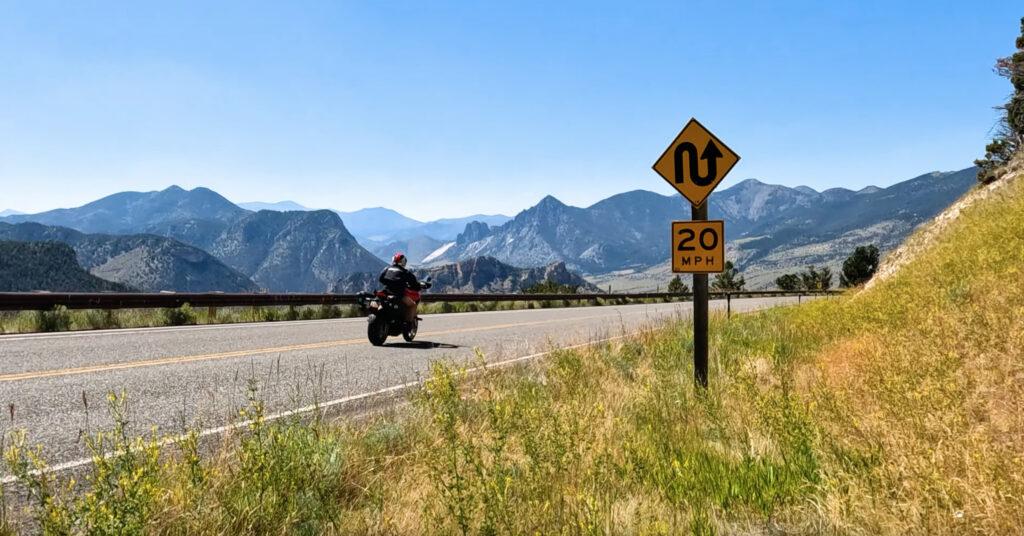
Is the speed limit or those corner advisory speeds. Is that the correct speed? That as long as we stay below that number, everything is going to be all right. Now imagine that it’s raining or it’s a super cold morning and there’s frost in all the shadows or your tires are worn out. What is the suitable entrance speed now?
So right now, we’re just sitting here looking at this corner. We have a lot of time to kind of process what we can see. But when we’re actually riding. We have to make this decision rather quickly. We only have a few seconds to decide what that suitable entrance speed is. And making that decision before we can see the exit of the corner is like trying to predict the future.
I’m not very good at predicting the future. If I was, I probably wouldn’t have spent those 10,000 bitcoins on those two supreme pizzas.
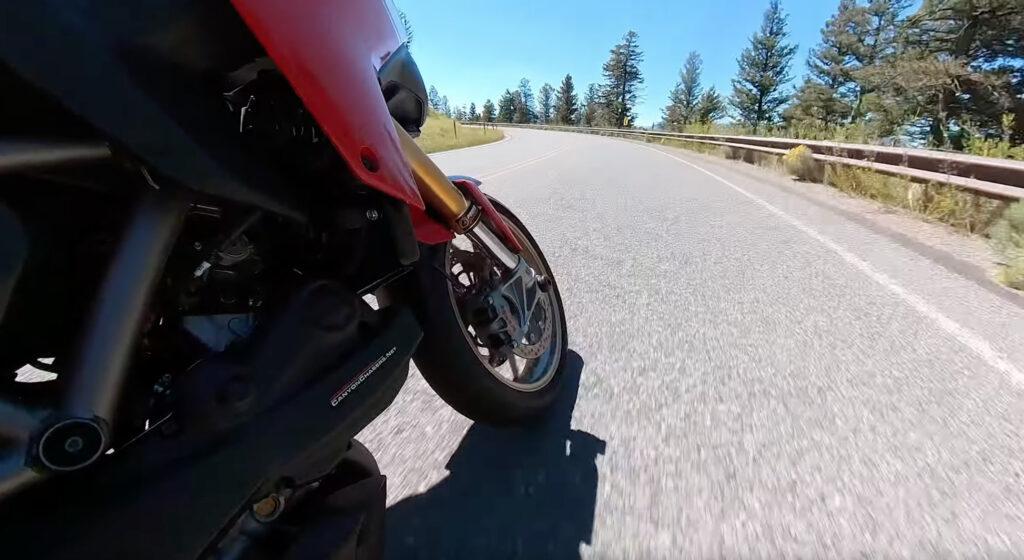
Watch what happens to my suspension if I try to get all my breaking done before tip-in. Do you see how the front just springs back up? That unloads the front tire; that reduces how much grip we have. Watch what the forks do if I continue to brake past corner tip-in, and gradually decrease front brake pressure as the motorcycle leans. Which one looks better to you? Which one will give us more front tire grip?
Now, this is going to sound super obvious, but bear with me, because this is a a way to think about corners a little bit differently. Corner entrance. It serves only to get us pointed towards corner exit. That’s it. It’s not a place to go fast. It’s not a place where we have to be off the brakes at a certain
point. It’s not a place where we have to be on the throttle, at a certain point to maintain stability.
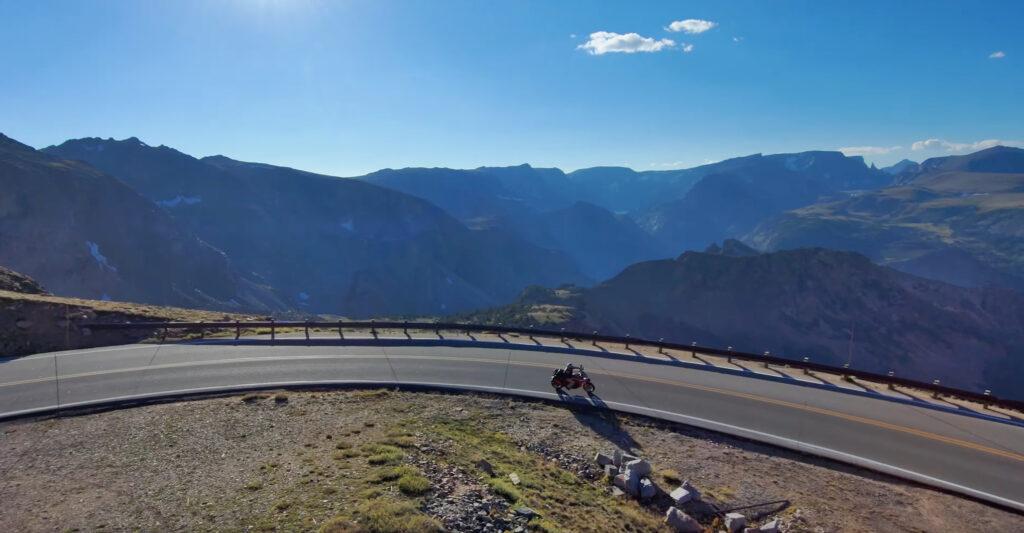
We need to get the motorcycle turned and pointed towards the exit. No matter what. So how do we do that?
Light front brake pressure and we’re talking just a little bit of brake pressure sometimes even just like half a percentage point, just enough to turn on that that brake light is enough to push that front tire into the ground, which gives us more grip and it helps the motorcycle change direction.
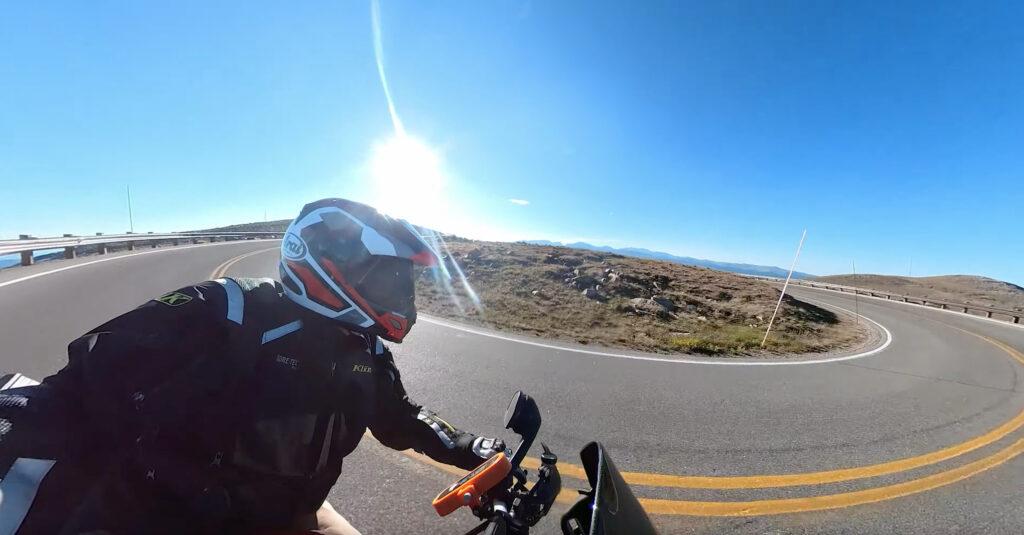
Motorcycles are designed and engineered to work like this. For a given lean angle. Speed equals radius. When we go to the front brake, the motorcycle wants to slow down and turn.
Neutral throttle or maintenance throttle: The radius stays the same, and when we start to accelerate, when we start to add speed. The motorcycle stops turning and wants to run wide.
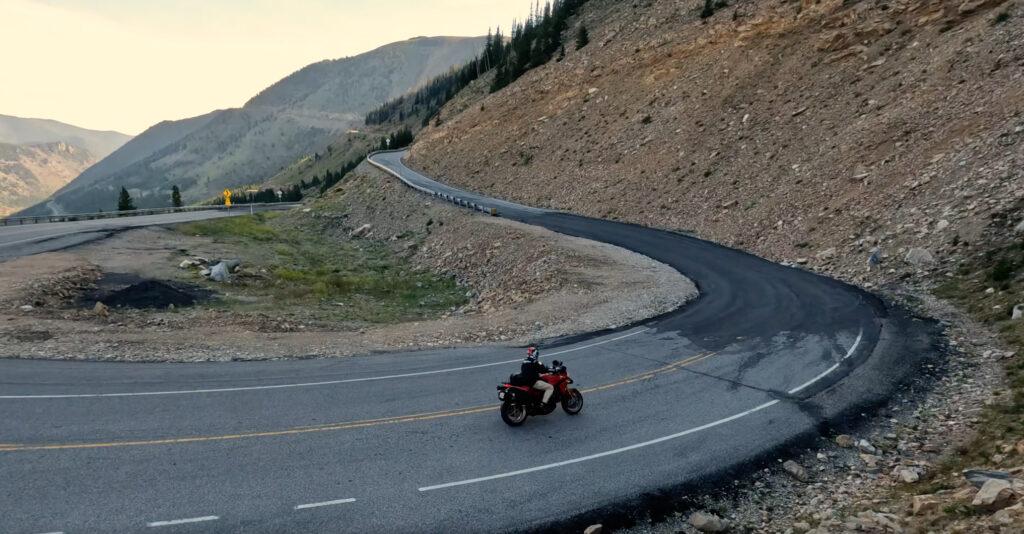
Uphill corners are one thing. They’re pretty easy, all things considered, because gravity is helping us manage our speed. It makes everything easier as we’re coming into this downhill corner, there’s a lot going on. The the best riders, the most talented riders in the world use their brakes the most. What does that mean?
I go to my brake early, I carry it longer, but with less pressure. Earlier, lighter, longer. And that helps the motorcycle change direction. Downhill corner. Gravity is constantly pulling us faster, but if I hold on to one or two percentage points of brake pressure, not a lot. I’m not going to mash it. Just a little
bit of brake pressure and it’s going to control
my speed, which is going to control my direction. And it makes that beginning half of the corner, that busy part of the corner, it makes it a lot less frantic.
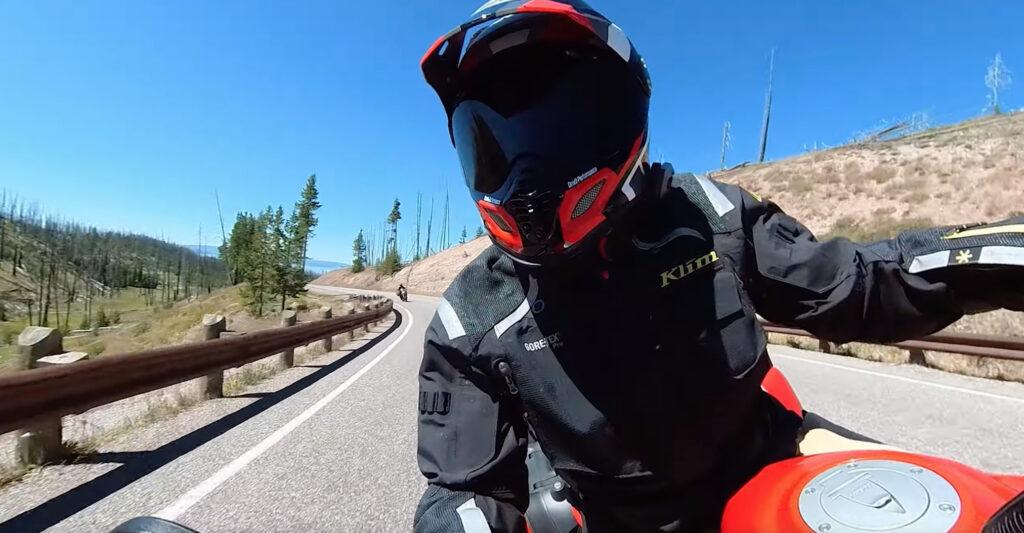
Look, I know that a lot of you guys have tried this, but found that you end up over slowing for corners. So either you go back to trying to get off the brakes before corner tip-in, or you push yourselves to brake later or carry more speed into the corners.
Over slowing into corners isn’t a braking problem. It’s an eyes problem. If we’re over slowing, that means we need to get our eyes up and look for our exit sooner. Look, every motorcycle we’ve watched go through this corner has done exactly this. They tip in early, And when they get to the point in the corner where they can see the exit, they accelerate.
And every one of them has crossed the center line or nearly did So what’s the difference? The green bike is what every bike we’ve seen today has done. Both bikes have visibility, but only one of them has direction We know what’s going to happen when they accelerate. The bike stops turning and wants to run wide.
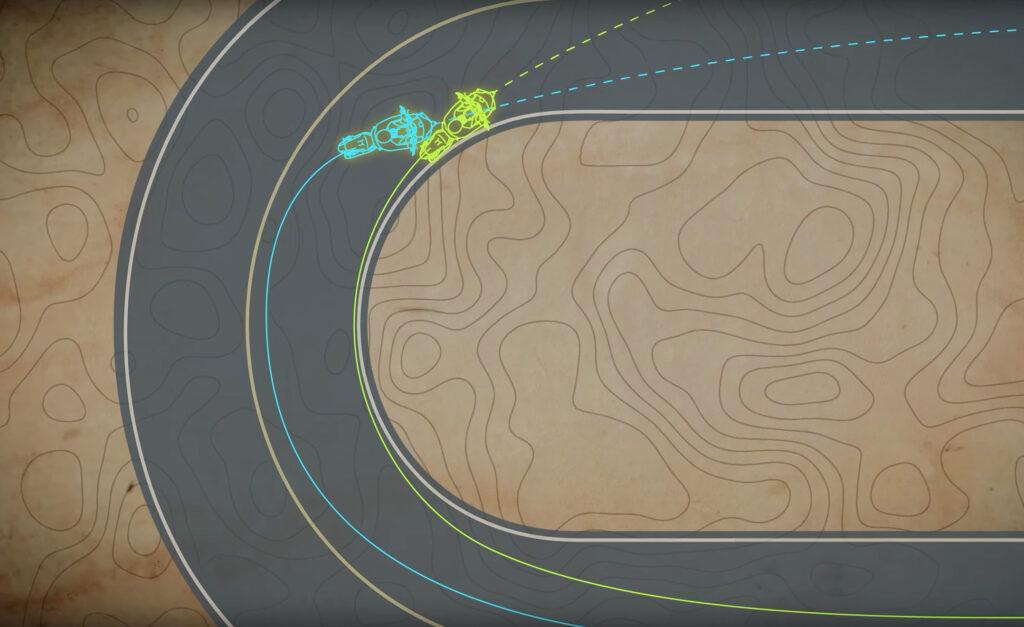
Compare that to our blue rider. By being a bit more patient and focusing on getting the bike turned towards the exit. They are now in a better position. Which bike is in more control? Which bike can go faster if they want to, and which bike is also going to be taking less risk.
We don’t want to think about this like it’s an emergency response as a reaction to other things going wrong. This becomes our plan. This becomes what we plan to do into every corner. When we plan on these techniques, it’s way easier to be smooth and precise and controlled.
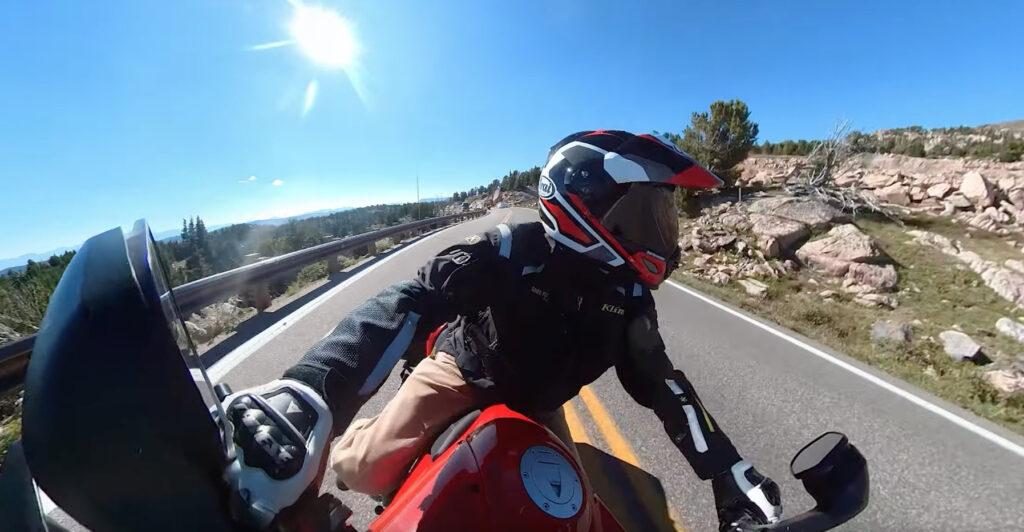
We manage our speed to manage our direction. What does that mean exactly?
on the racetrack. We would talk about the apex, the apex being the point where we’re closest to the inside of the corner.
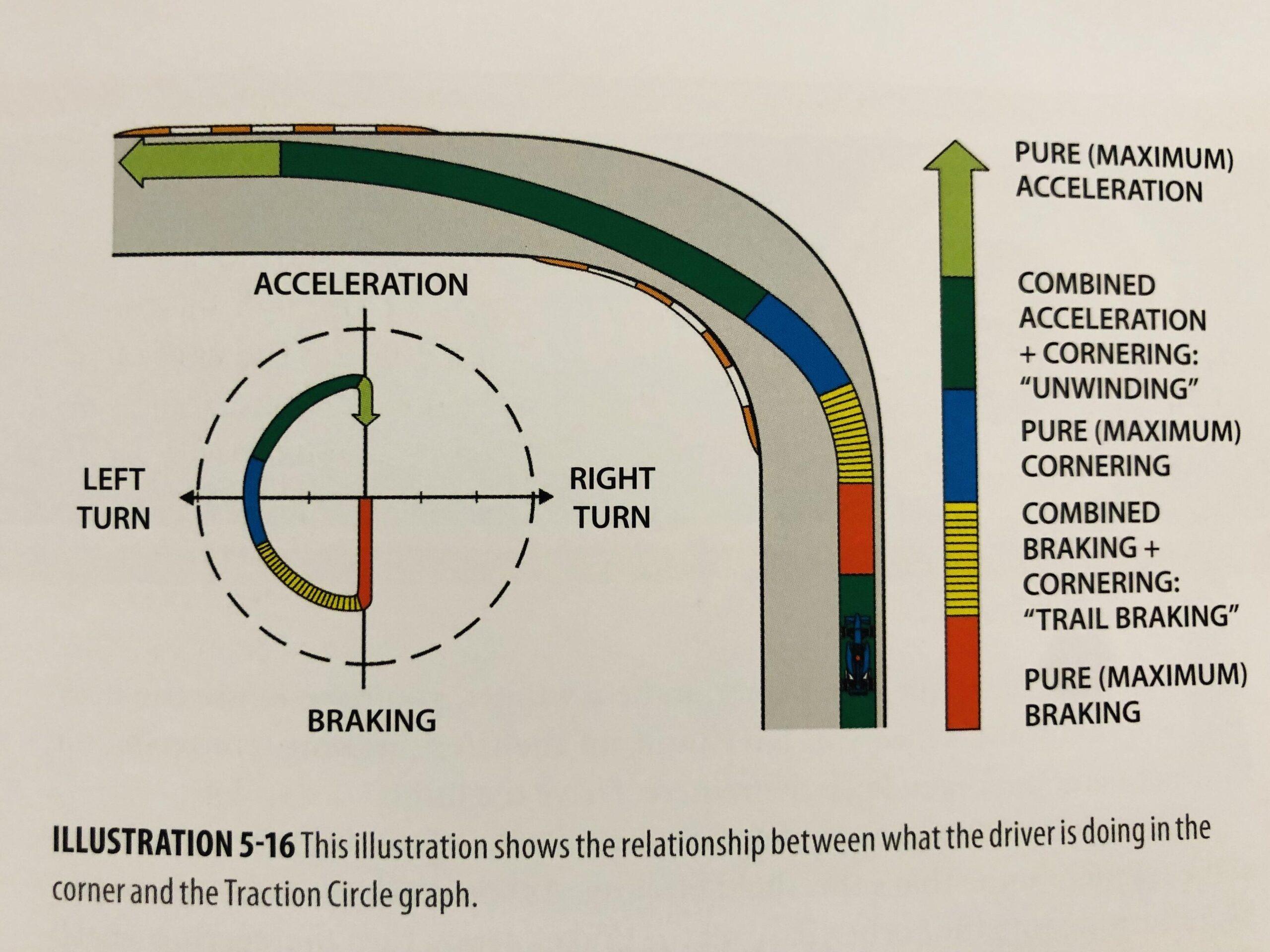
That’s less important here on the street. We’re thinking about that decision point. Where can I see my exit? Where can I take away my lean angle? That’s typically the point where we’re going to turn the most, finish up that turn and get that direction. So our path of travel can often be very outside, outside, outside. I have visibility. Then I come to the inside and accelerate out of the corner. Wait until we’re actually physically pointed the direction we want to go out of the corner before we actively accelerate. The measure of a good corner shouldn’t be
how much you leaned or how much speed you carried into and through the turn.
The measure of a good corner is if we got direction before we started to accelerate.
As we use the front brake, the motorcycle wants to slow down and turn. Neutral throttle. The radius stays the same. When we start to accelerate, the motorcycle stops turning and starts to run wide, This should be a perspective change. Think about and focus on getting the motorcycle turned. Use up the entrance of your corner to set up and prepare to get the motorcycle pointed towards the exit. Trail breaking, lines, apexes, counter steering. This all exist to serve one primary objective. Getting the motorcycle turned. The exit is the only thing that matters.
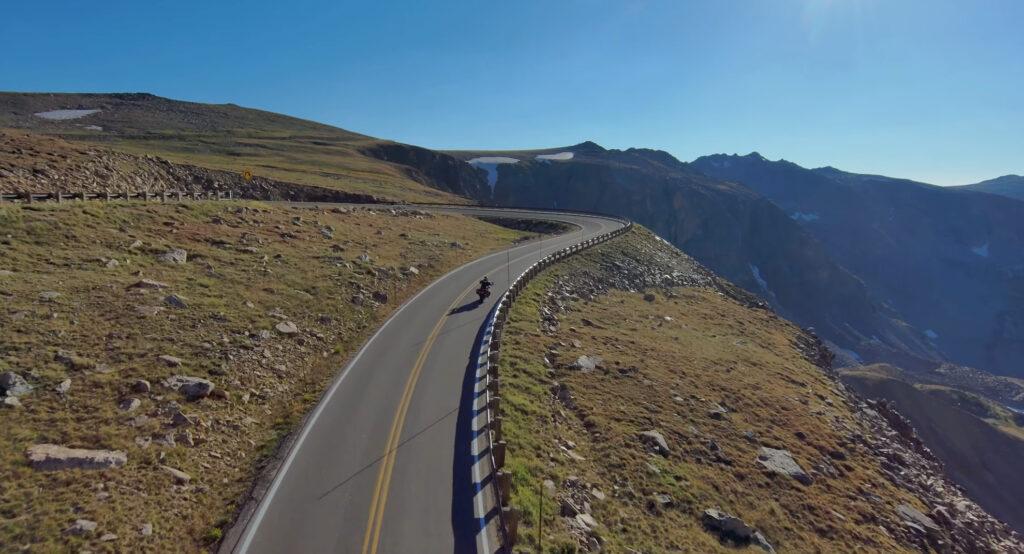
Get the motorcycle turned no matter what. Sacrifice your corner entrance, go slower, take it easier, be more mellow, get the motorcycle pointed no matter what. Corner entrance serves only to get us to this point. Our corner exit.
